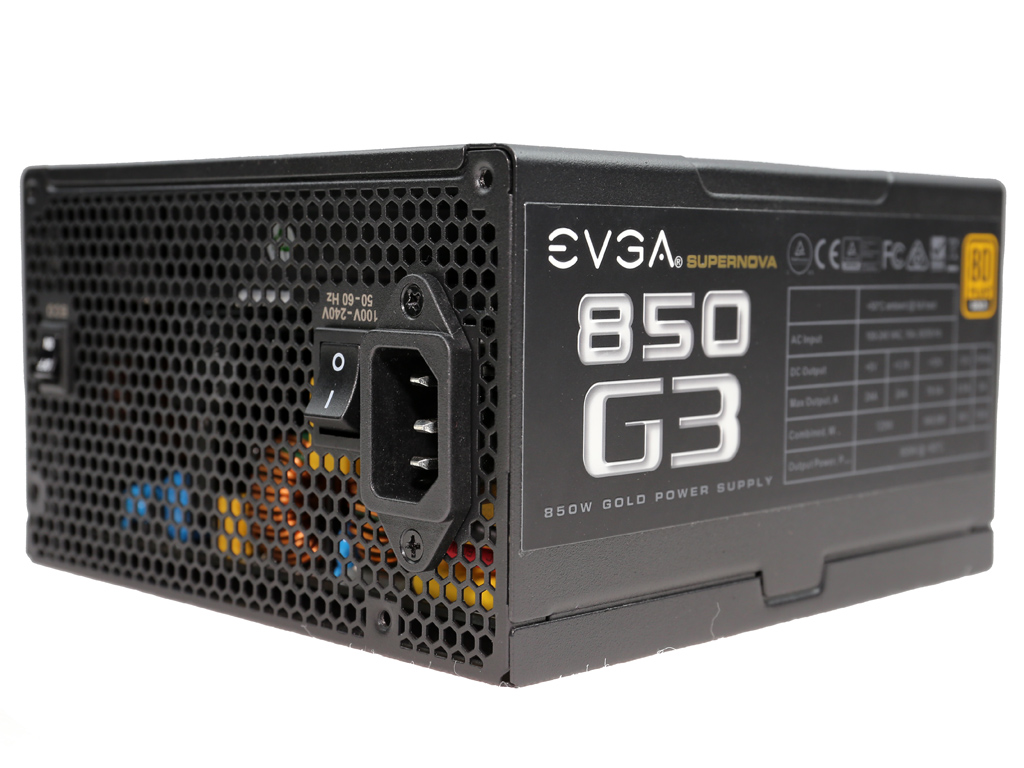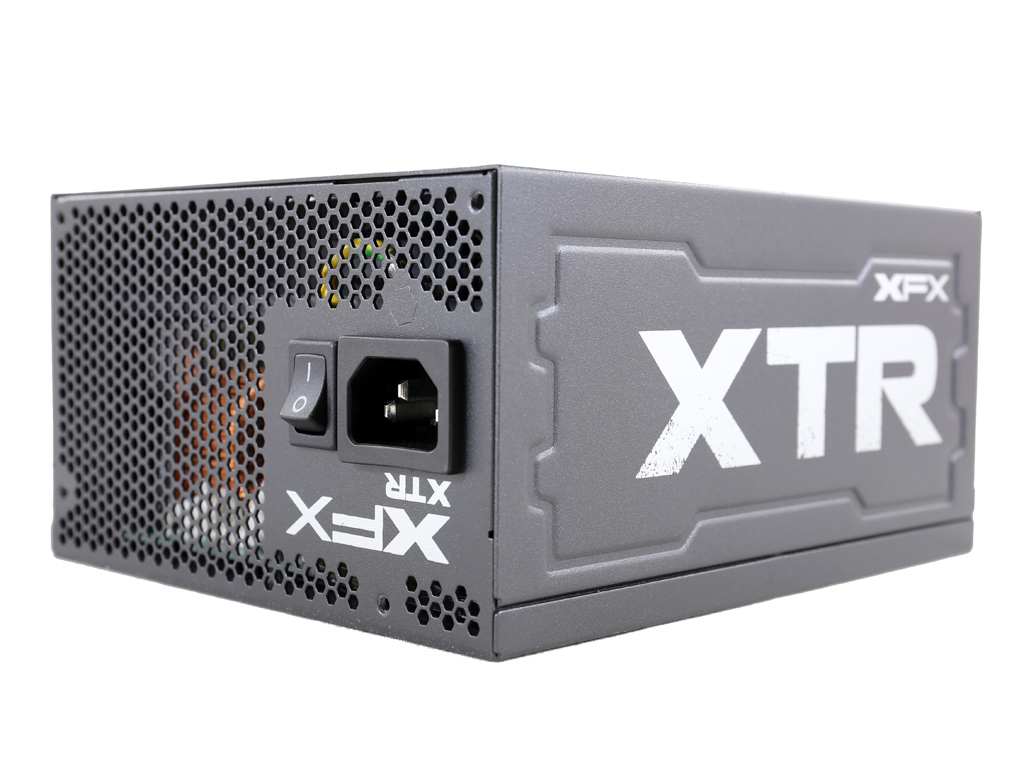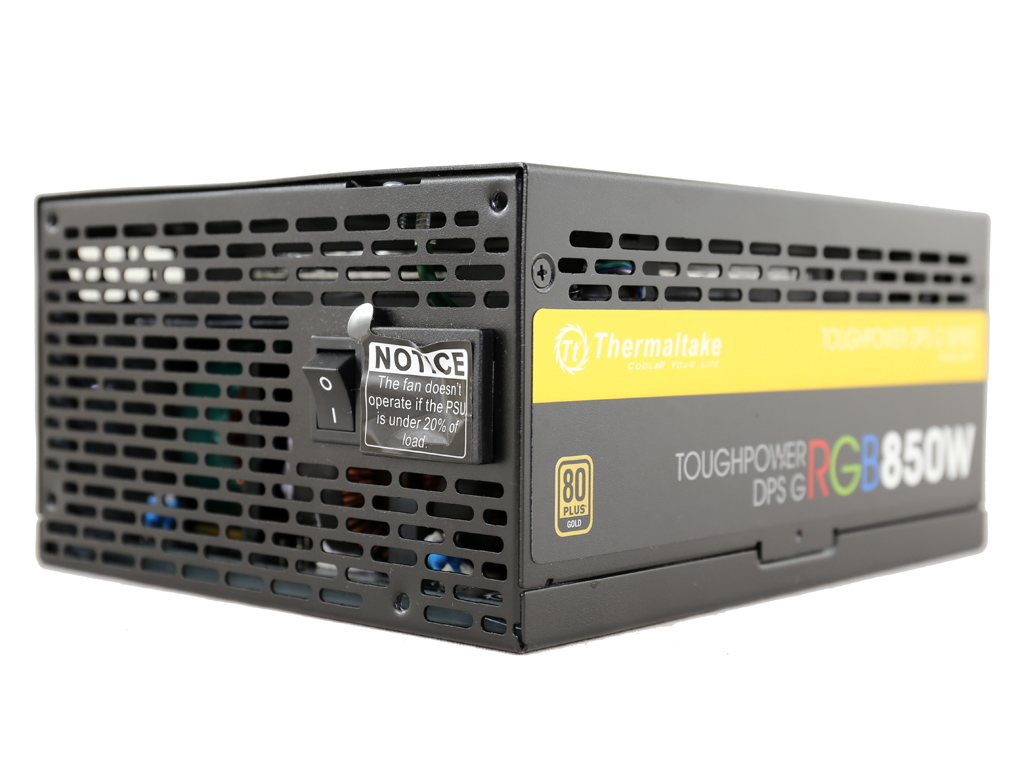EVGA SuperNOVA 850 G3 PSU Review
EVGA refreshed its popular G2 PSU family with the G3 one using Super Flower's Leadex II platform. The 850 G3 is the second strongest member in this line-up, offering high performance and a depth of just 15cm.
Why you can trust Tom's Hardware
Load Regulation, Hold-Up Time, And Inrush Current
To learn more about our PSU tests and methodology, please check out How We Test Power Supply Units.
Primary Rails And 5VSB Load Regulation
Load Regulation testing is detailed here.
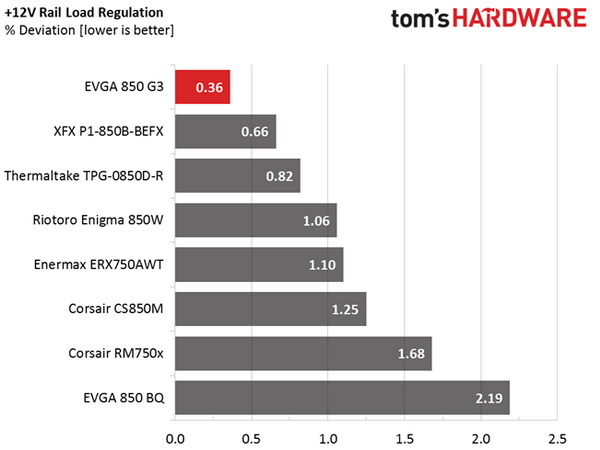
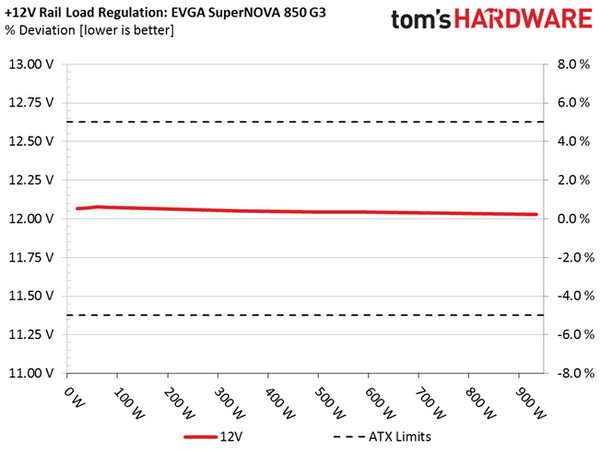
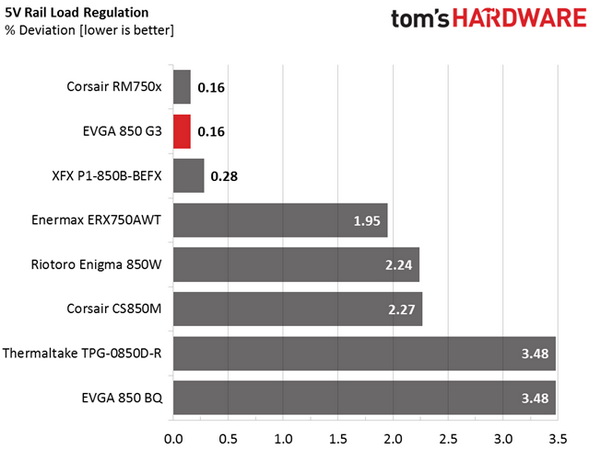
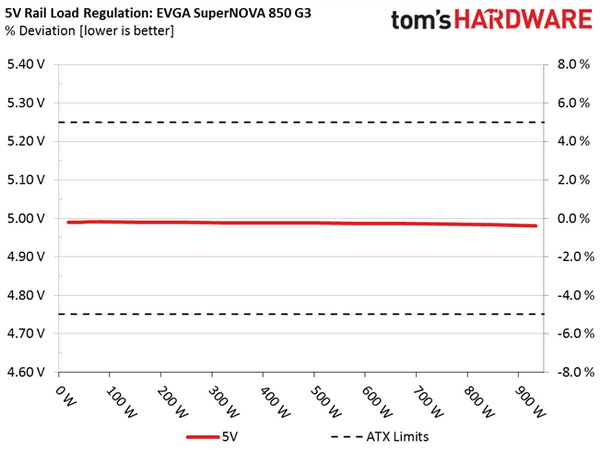
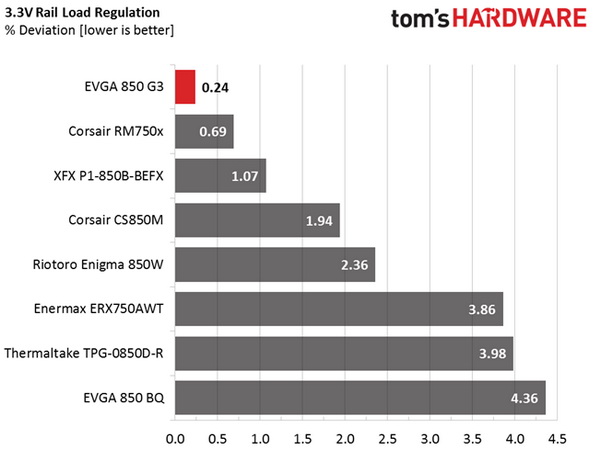
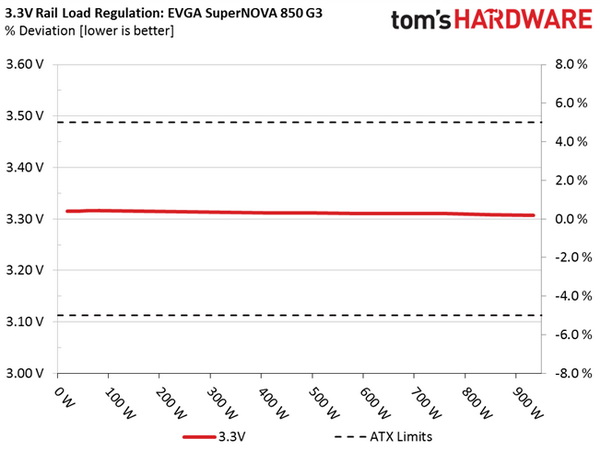
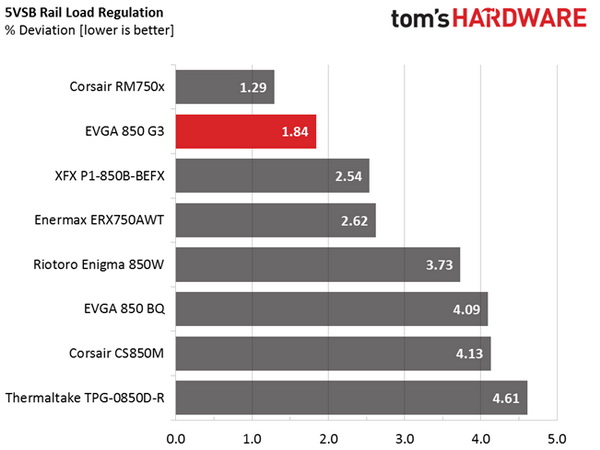
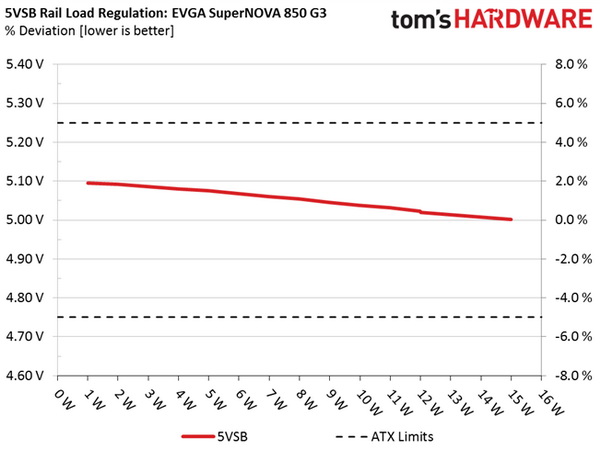
Hold-Up Time
Our hold-up time tests are described in detail here.
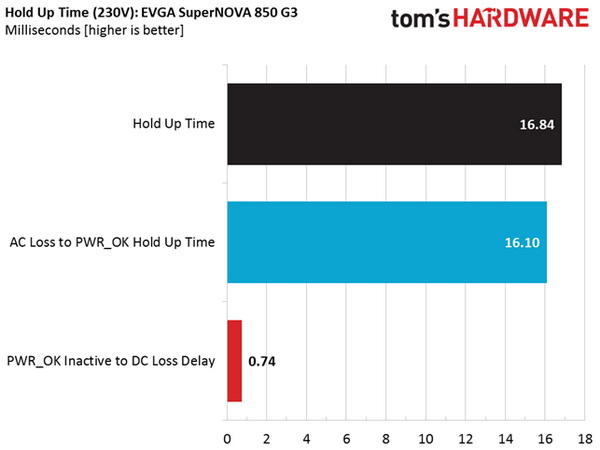
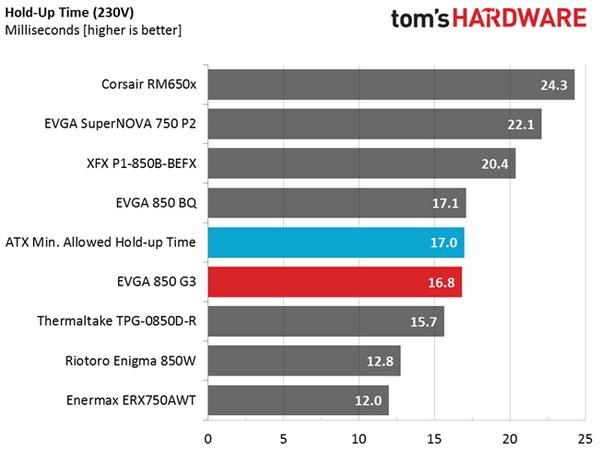
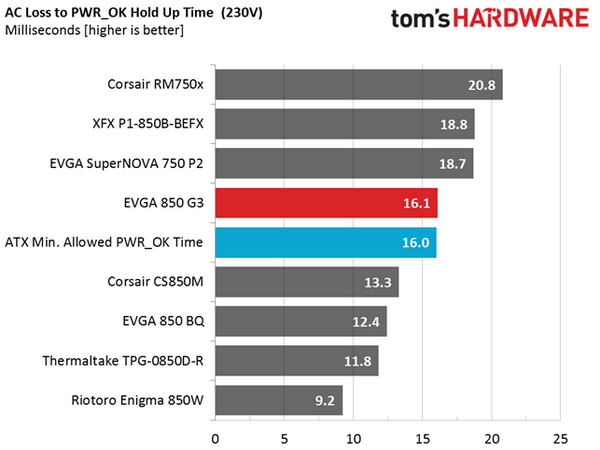
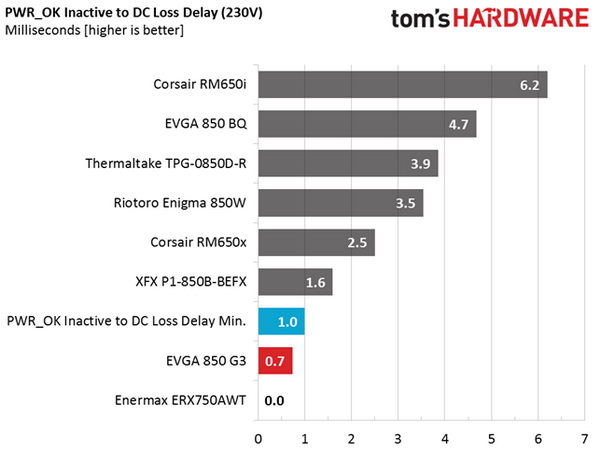
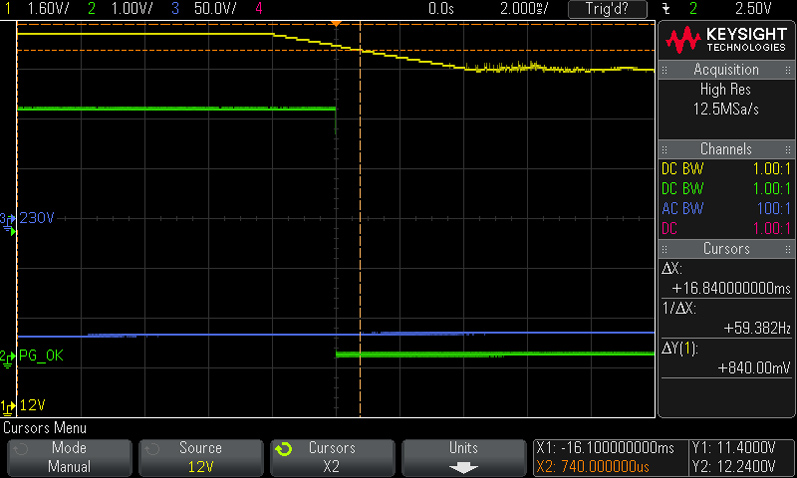
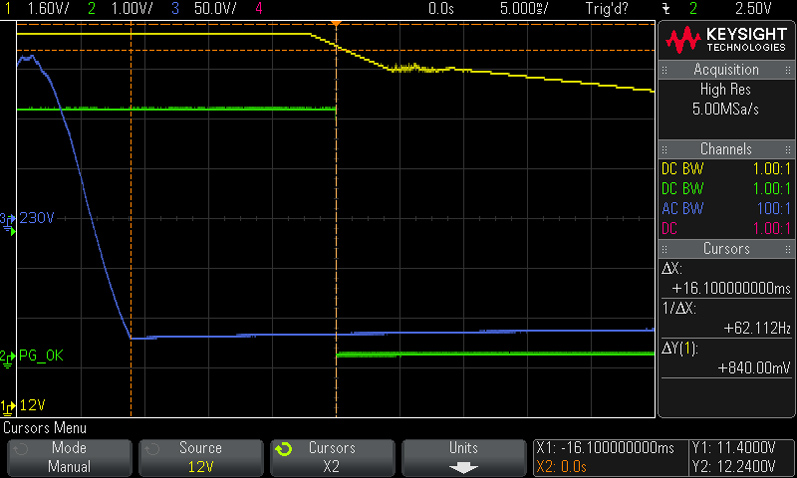
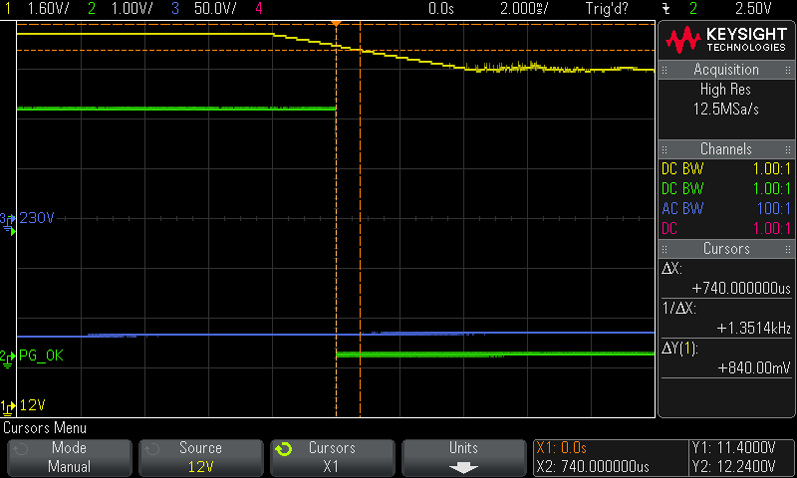
Since the hold-up time we measured comes very close to 17ms, we won't complain too much about the small difference. The power-good signal's hold-up time is over 16ms, but the delay is less than 1ms (the ATX spec's minimum required period). Obviously, the bulk cap is right on the edge of what this PSU needs.
Inrush Current
For details on our inrush current testing, please click here.
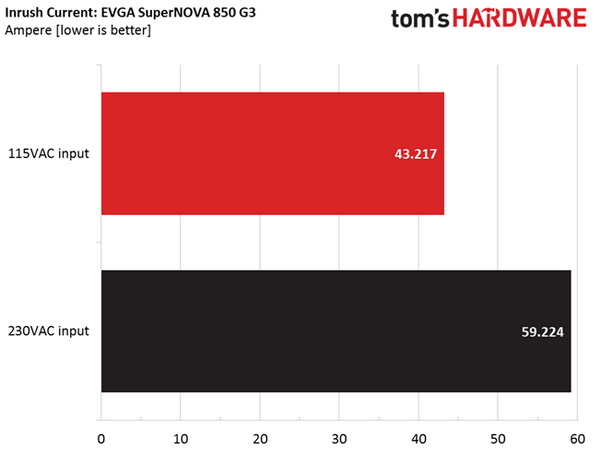
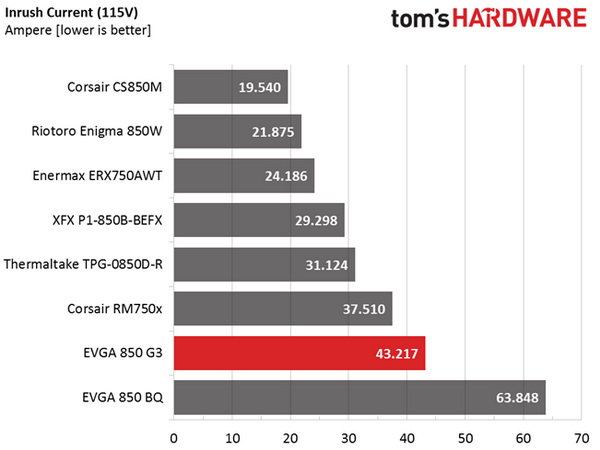
Measured inrush current is a little higher than average with 115V input, and with 230V it is quite high.
Load Regulation And Efficiency Measurements
The first set of tests reveals the stability of the voltage rails and the SuperNOVA 850 G3's efficiency. The applied load equals (approximately) 10 to 110 percent of the PSU's maximum load in increments of 10 percentage points.
Get Tom's Hardware's best news and in-depth reviews, straight to your inbox.
We conducted two additional tests. During the first, we stressed the two minor rails (5V and 3.3V) with a high load, while the load at +12V was only 0.1A. This test reveals whether a PSU is Haswell-ready or not. In the second test, we determined the maximum load the +12V rail could handle with minimal load on the minor rails.
| Test # | 12V | 5V | 3.3V | 5VSB | DC/AC (Watts) | Efficiency | Fan Speed | Fan Noise | Temps (In/Out) | PF/AC Volts |
|---|---|---|---|---|---|---|---|---|---|---|
| 1 | 5.234A | 2.004A | 1.990A | 0.984A | 84.791 | 85.408% | 1590 RPM | 43.9 dB(A) | 38.51°C | 0.953 |
| 12.074V | 4.991V | 3.316V | 5.075V | 99.278 | 40.37°C | 115.08V | ||||
| 2 | 11.503A | 3.000A | 2.986A | 1.179A | 169.639 | 89.250% | 1630 RPM | 44.9 dB(A) | 39.86°C | 0.976 |
| 12.066V | 4.990V | 3.315V | 5.068V | 190.072 | 42.21°C | 115.07V | ||||
| 3 | 18.144A | 3.508A | 3.498A | 1.380A | 254.875 | 90.525% | 1680 RPM | 45.0 dB(A) | 40.53°C | 0.985 |
| 12.059V | 4.989V | 3.314V | 5.060V | 281.553 | 43.47°C | 115.12V | ||||
| 4 | 24.774A | 4.009A | 3.980A | 1.581A | 339.724 | 90.885% | 1690 RPM | 45.3 dB(A) | 41.19°C | 0.990 |
| 12.051V | 4.988V | 3.313V | 5.054V | 373.794 | 44.67°C | 115.22V | ||||
| 5 | 31.062A | 5.009A | 4.977A | 1.780A | 424.622 | 90.807% | 1761 RPM | 46.0 dB(A) | 42.06°C | 0.992 |
| 12.046V | 4.988V | 3.312V | 5.045V | 467.607 | 46.14°C | 115.24V | ||||
| 6 | 37.354A | 6.015A | 5.976A | 1.981A | 509.630 | 90.372% | 1830 RPM | 47.0 dB(A) | 42.51°C | 0.994 |
| 12.043V | 4.988V | 3.312V | 5.038V | 563.924 | 47.30°C | 115.09V | ||||
| 7 | 43.638A | 7.016A | 6.975A | 2.185A | 594.558 | 89.913% | 1895 RPM | 47.5 dB(A) | 43.39°C | 0.995 |
| 12.042V | 4.986V | 3.311V | 5.031V | 661.260 | 48.68°C | 115.12V | ||||
| 8 | 49.934A | 8.024A | 7.975A | 2.386A | 679.546 | 89.242% | 1925 RPM | 47.8 dB(A) | 43.77°C | 0.996 |
| 12.039V | 4.986V | 3.310V | 5.023V | 761.462 | 50.00°C | 115.09V | ||||
| 9 | 56.665A | 8.523A | 8.491A | 2.390A | 764.610 | 88.777% | 2015 RPM | 48.9 dB(A) | 44.67°C | 0.996 |
| 12.036V | 4.985V | 3.310V | 5.020V | 861.275 | 51.64°C | 115.11V | ||||
| 10 | 63.133A | 9.035A | 8.976A | 2.997A | 849.382 | 88.024% | 2025 RPM | 50.4 dB(A) | 45.55°C | 0.996 |
| 12.033V | 4.983V | 3.308V | 5.001V | 964.944 | 53.48°C | 115.18V | ||||
| 11 | 70.211A | 9.042A | 8.983A | 3.000A | 934.374 | 87.293% | 2130 RPM | 50.7 dB(A) | 46.67°C | 0.996 |
| 12.030V | 4.981V | 3.307V | 4.997V | 1070.390 | 55.29°C | 115.09V | ||||
| CL1 | 0.099A | 14.024A | 14.005A | 0.003A | 118.149 | 82.328% | 2015 RPM | 48.9 dB(A) | 44.16°C | 0.974 |
| 12.064V | 5.012V | 3.331V | 5.092V | 143.510 | 48.03°C | 115.09V | ||||
| CL2 | 70.794A | 1.002A | 1.003A | 1.001A | 864.929 | 88.437% | 2025 RPM | 49.4 dB(A) | 46.23°C | 0.996 |
| 12.029V | 4.968V | 3.299V | 5.055V | 978.020 | 53.70°C | 115.11V |
Load regulation is great on every rail. This is a fine example of what we call tight load regulation. Moreover, the PSU's efficiency levels easily meet the 80 PLUS Gold requirements, even under very high ambient temperatures like the ones we apply during our tests.
Our only complaint is the fan's noise, since it spins very fast starting with our first load test. We mentioned this earlier, but EVGA's fan profile is unfortunately quite aggressive. Contrary to older Super Flower implementations, there are many fan speed modes available now. But none of them keep the fan spinning at low speeds under high ambient temperatures.
Current page: Load Regulation, Hold-Up Time, And Inrush Current
Prev Page A Look Inside And Component Analysis Next Page Efficiency, Temperature, And Noise
Aris Mpitziopoulos is a contributing editor at Tom's Hardware, covering PSUs.
-
envy14tpe Made by Super Flower? Love the quality SF produces. Can't wait to buy my new Leadex II.Reply -
powernod For those looking for an "80+ Gold efficient PSU", probably they won't have to look elsewhere. LeadexII seems amazing platform!!Reply -
BugariaM Based on the information from EVGA siteReply
Such an aggressive fan curve is only made on 1000W and 850W units of the G3 series
550W, 650W and 750W - have a much smoother relaxed curve
I'm curious, what is the fan curve for the 850W unit when the ECO mode is off? It is possible that in this mode it will be much quieter at normal load... -
waylo Dangit. Just bought this yesterday, focusing on a quiet PSU, deciding on this over the G2 or P2 version. I know the quality will be there, but disappointed in the noise levels.Reply -
Virtual_Singularity Excellent, impressively thorough and professional review, as usual. Much appreciated.Reply -
Stone Cold Reply
So you are saying this PSU is miles better than the Seasonic prime?!19439055 said:Ahh, SuperFlower. I don't know why people buy anything else.
